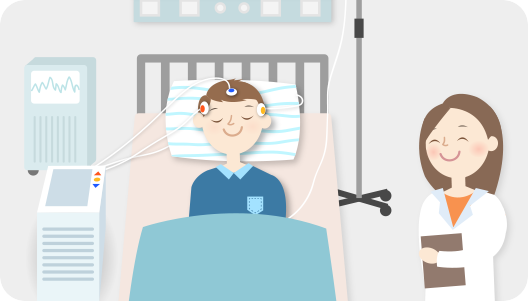- 뒤로가기 Sleep Disorder

Sleep disorders are a very broad concept involving failure to take a healthy sleep, inability to maintain an awakening during the daytime despite having adequate sleep, or difficulty in sleeping or awake because the sleep rhythm is disturbed.
A common sleep disorder after a disaster is insomnia.
A common sleep disorder after a disaster is insomnia.
The reasons why sleep disorders are important for mental health after a disaster
Sleep disorders are the most common symptom after a disaster, which is accompanied by daytime fatigue, poor concentration, memory impairment, and irritability, so treatment of sleep disorder is related to quality of life. The post-disaster sleep disorder increases the risk of developing post-traumatic stress disorder, which in severe cases requires treatment. Successful treatment of sleep disorders can reduce symptoms of post-traumatic stress disorder.- Choose the most comfortable and safe place to sleep.
- Do not eat or drink before going to bed.
- Avoid caffeine, alcohol, and nicotine in the four to six hours before bedtime.
- Have time to relax (music, reading, bathing, foot bathing, etc.) before going to bed. However, you should take a bath two hours before bed.
- Do not look at the clock even if you wake up at night.
- Avoid naps and increase activity in the sun.
- Live a regular life and keep your sleep time constant.
- 취Do not use digital devices such as mobile phones before bedtime.